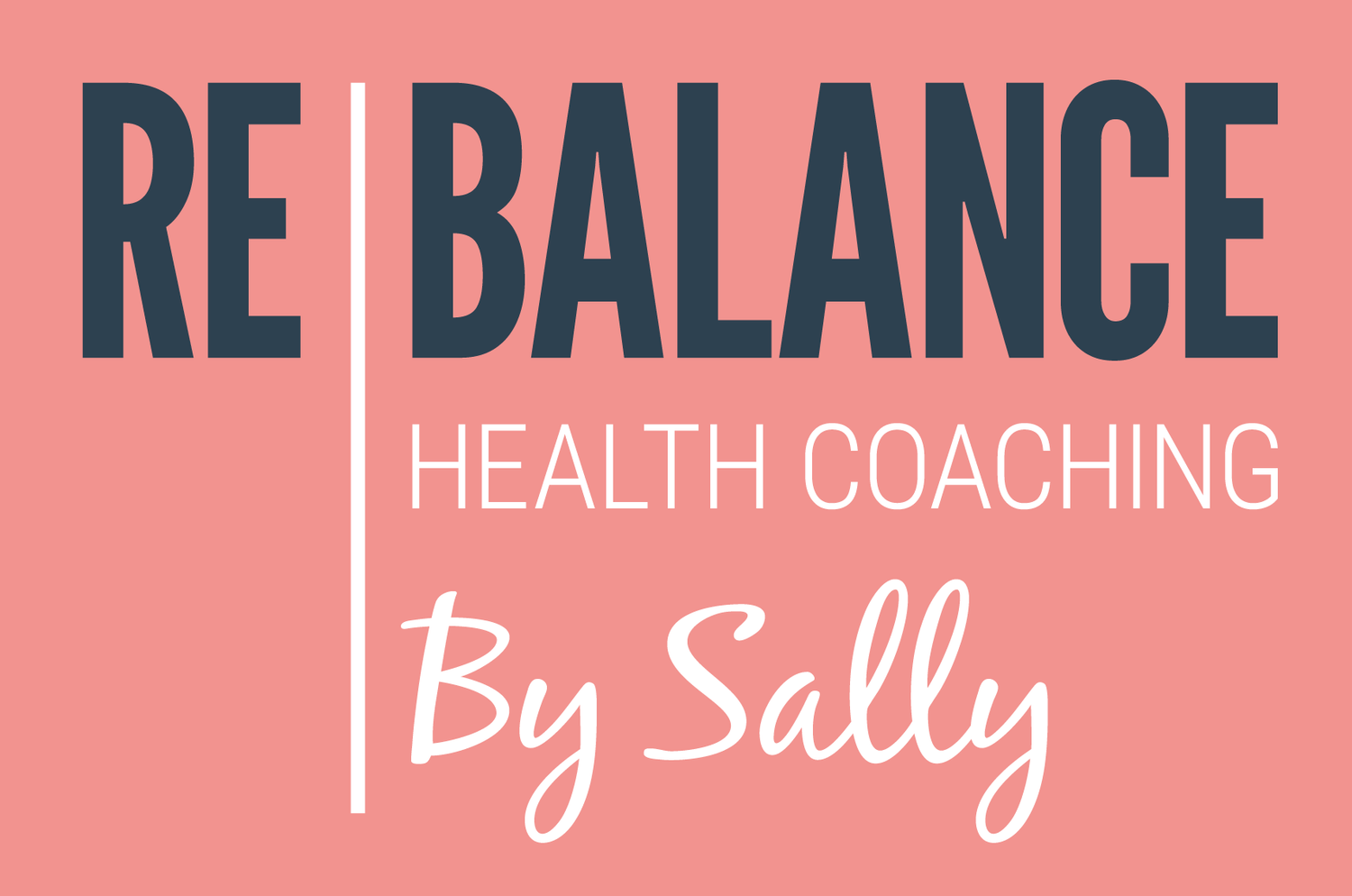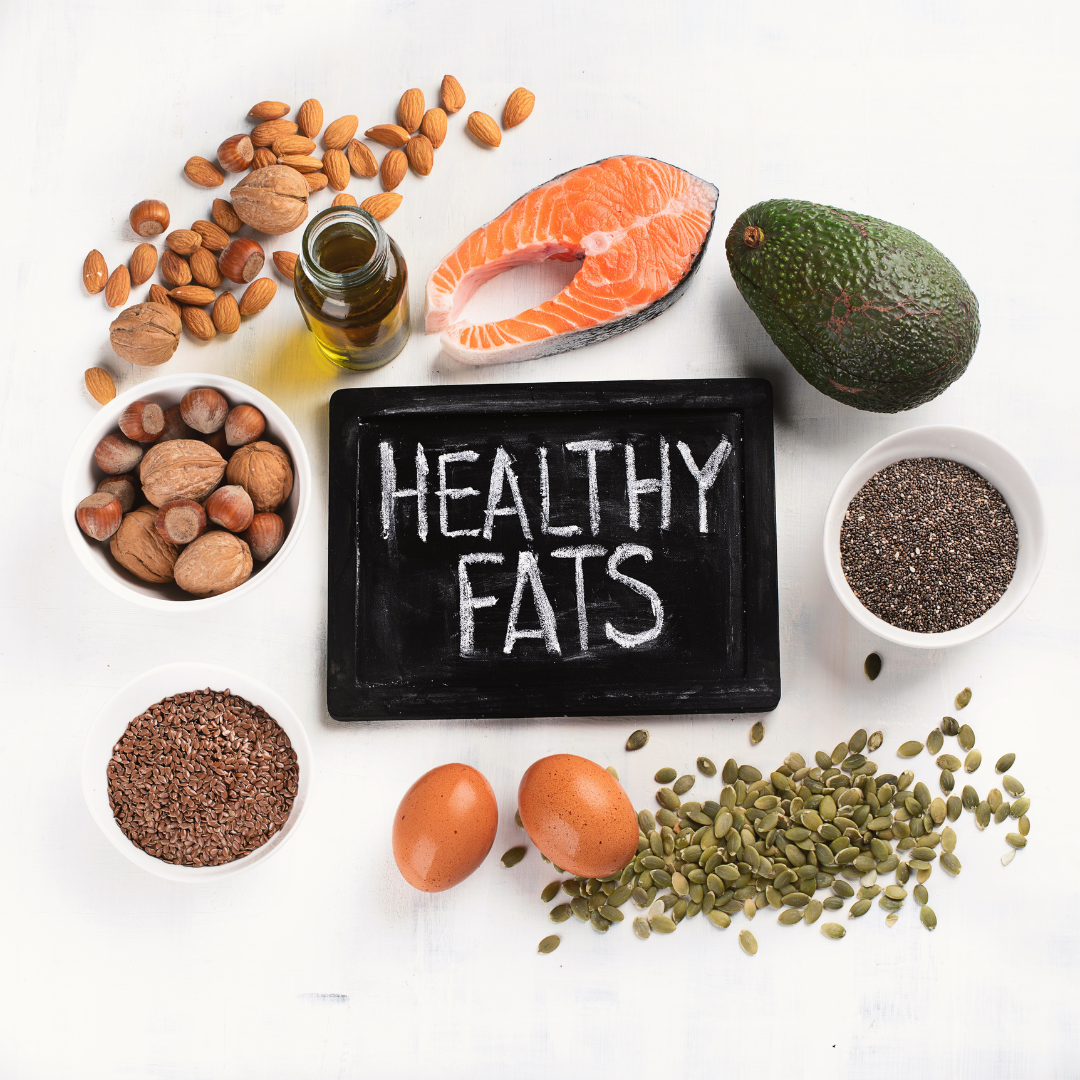are fats good or bad?
Fats have had a lot of bad press over the years and there is a lot of confusing information out there. So, are fats good or bad for us? Well, the simple answer is …. it depends ….. because not all fats are equal!
There are several different types of fats, and each has a unique effect on the body. Some fats are beneficial and necessary for overall health, while others can be harmful when consumed in excess.
During the menopause transition, the body goes through significant hormonal changes, and consuming the right types of fats can help support hormone balance and overall health and well-being. Let’s start by taking a look at the different types of fat:
What are the different types of fats?
Saturated fats: These are solid at room temperature and are usually found in animal products such as meat, cheese, and butter. While small amounts of saturated fats are necessary for the body, consuming too much can lead to high cholesterol levels and an increased risk of heart disease.
Trans fats: These are usually found in processed foods such as biscuits, cakes, pies, frozen pizza and fried foods. Trans fats can increase LDL (bad) cholesterol levels and decrease HDL (good) cholesterol levels, leading to an increased risk of heart disease.
Monounsaturated fats: These are found in plant foods such as olive oil, avocado, nuts and seeds. Monounsaturated fats can help reduce LDL (bad) cholesterol levels, lower blood pressure and lower the risk of heart disease.
Polyunsaturated fats: These are found in oily fish (salmon, sardines, mackerel), eggs, flaxseed, and walnuts. Polyunsaturated fats are essential fats that the body needs but cannot produce on its own. They can help reduce inflammation in the body and lower the risk of heart disease.
Omega-3 fatty acids: These are a type of polyunsaturated fat that are particularly beneficial for brain and heart health. Research also suggests that Omega-3’s may help improve bones strength, help keep joints supple and help reduce premature aging of skin. They are found in oily fish such as salmon, mackerel, and sardines, as well as in flaxseed, chia seeds, eggs, soybeans and walnuts.
Why are fats important during menopause?
When it comes to menopause, consuming the right types of fats can help support overall health and reduce the risk of heart disease, which is more common in postmenopausal women. Consuming foods rich in monounsaturated and polyunsaturated fats, such as olive oil, nuts, and oily fish, can help reduce inflammation and improve cholesterol levels.
Sex hormones, (oestrogen, progesterone, testosterone) which are declining during menopause are produced from cholesterol. This is why a low-fat diet during menopause is not recommended as it may in fact make symptoms worse.
Menopause can cause changes in the skin and hair, including dryness, thinning, and loss of elasticity. Healthy fats contribute to skin and hair health by providing essential fatty acids that help maintain moisture, improve skin texture, and promote healthy hair growth.
Healthy fats are also essential for bone health. Low-fat diets may negatively affect bone health which is important during menopause as bone density declines, putting us at risk of osteoporosis.
It's important to note that while some fats are beneficial for overall health, consuming too much of any type of fat can lead to weight gain, which can exacerbate symptoms of menopause such as hot flashes and mood swings. It's therefore important to consume fats in moderation and maintain a balanced diet that includes a variety of nutrient-dense foods.
The issue with low-fat diets
The issue with low fat foods is that they tend to be heavily processed, plus, in order to make them taste better the manufacturers add in sugar and salt to replace the fat which can negatively impact health and hinder weight loss efforts.
Fats also help with blood sugar balance. They play a crucial role in slowing down the absorption of glucose from carbohydrates, which helps regulate blood sugar levels. In low-fat diets, carbohydrate intake often increases to compensate for the reduced fat content. This can lead to rapid spikes in blood sugar levels, potentially impacting insulin sensitivity and increasing the risk of diabetes and hormone imbalance.
Fats are essential for the absorption of fat-soluble vitamins (such as vitamins A, D, E, and K). By significantly reducing fat intake, there is a risk of nutrient deficiencies if the diet is not adequately compensated with other nutrient-rich foods.
Are fats good or bad?
Balance is key when it comes to fats. Focus on consuming beneficial healthy fats (unsaturated) while limiting other fats (saturated) & avoid when possible harmful fats (trans fats) just have bought cakes, biscuits etc as occasional treats.
A well-balanced diet that includes a variety of foods, such as lean proteins, whole grains, fruits, vegetables, and moderate amounts of healthy fats, support a healthy menopause and a long healthy life.
Individual dietary needs may vary, so if you need support finding balance and knowing which foods to eat, when and how much, this is all included in the Re-Balance By Sally Health Coaching programmes. Contact me to chat through a plan that works for you rebalancebysally@gmail.com


